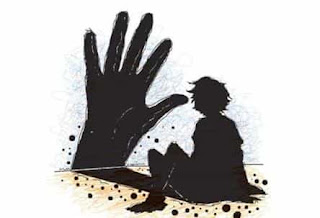Men and Boys also suffer
Sexual assault can happen to anyone, no matter your age, sexual orientation, or gender identity. Men and boys who have been sexually assaulted or abused may have many of the same feelings and reactions as other survivors of sexual assault, but they may also face some additional challenges because of social attitudes and stereotypes about men and masculinity.
Common reactions
Men and boys who have been sexually assaulted may experience the same effects of sexual assault as other survivors, and they may face other challenges that are more unique to their experience.
Some men who have survived sexual assault as adults feel shame or self-doubt, believing that they should have been “strong enough” to fight off the perpetrator. Many men who experienced an erection or ejaculation during the assault may be confused and wonder what this means. These normal physiological responses do not in any way imply that you wanted, invited, or enjoyed the assault. If something happened to you, know that it is not your fault and you are not alone.
Men who were sexually abused as boys or teens may also respond differently than men who were sexually assaulted as adults. The following list includes some of the common experiences shared by men and boys who have survived sexual assault. It is not a complete list, but it may help you to know that other people are having similar experiences:
- Anxiety, depression, post-traumatic stress out flashbacks, an eating disorders
- Avoiding people or places that remind you of the assault or abuse
- Concerns or questions about sexual orientation
- Fear of the worst happening and having a sense of a shortened future,Feeling like "less of a man" or that you no longer have control over your own body
- Feeling on-edge, being unable to relax, and having difficulty sleeping
- Sense of blame or shame over not being able to stop the assault or abuse, especially if you experienced an erection or ejaculation
- With drawal from relationships or friendships and an increased sense of isolation
Who are the perpetrators of sexual assault against men and boys?
How to support male survivors
It can be hard to tell someone that you have experienced sexual assault or abuse. You may fear that you will face judgment or not be believed. For many male survivors, stereotypes about masculinity can also make it hard to disclose to friends, family, or the community. Men and boys also may face challenges believing that it is possible for them to be victims of sexual violence, especially if it is perpetrated by a woman. Below are a few suggestions on how you can support a man or boy who discloses to you that he has experienced sexual assault or abuse.
- Listen. Many people in crisis feel as though no one understands them and that they are not taken seriously. Show them they matter by giving your undivided attention. It is hard for many survivors to disclose assault or abuse, especially if they fear not being believed because of stereotypes about masculinity.
- Validate their feelings. Avoid making overly positive statements like “It will get better” or trying to manage their emotions, like “Snap out of it” or “You shouldn’t feel so bad.” Make statements like “I believe you” or “That sounds like a really hard thing to go through.”
- Express concern. Tell them in a direct way that you care about them by saying something like “I care about you” or “I am here for you.”
- Do not ask about details of the assault. Even if you are curious about what happened and feel that you want to fully understand it, avoid asking for details of how the assault occurred. However, if a survivor chooses to share those details with you, try your best to listen in a supportive and non-judgmental way.
Victim speaks..
- Rajat's story: "Do not internalize the abuse, because that will make it seem that the abuse is happening all over again.”
- Brad’s story “I think for me and possibly other men, it’s a huge pride thing—feeling like you have to be the man and face your problems and get over it.”
- Nitin's story “Showing emotion about being abused? It's not well-accepted. As a Black man, you've been broken down so much that you have to put on a face of being strong. We have a lot of pain that is unattended to."
- Devansh's story “Talking about it really does take back power from the trauma.”
- Keith’s story “I was afraid of what people would think. I was ashamed that a man sexually assaulted me…that I didn't fight hard enough.”





Comments
Very Well Written ��
Lots of love and support ❤️
Stay blessed😇❤